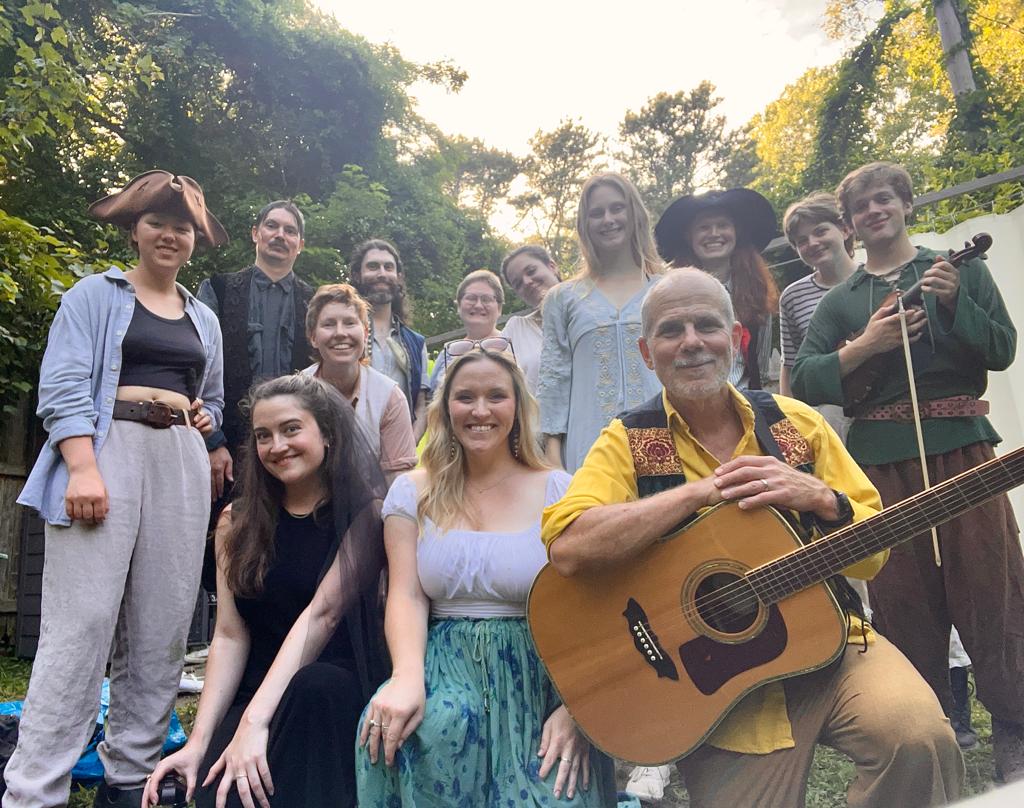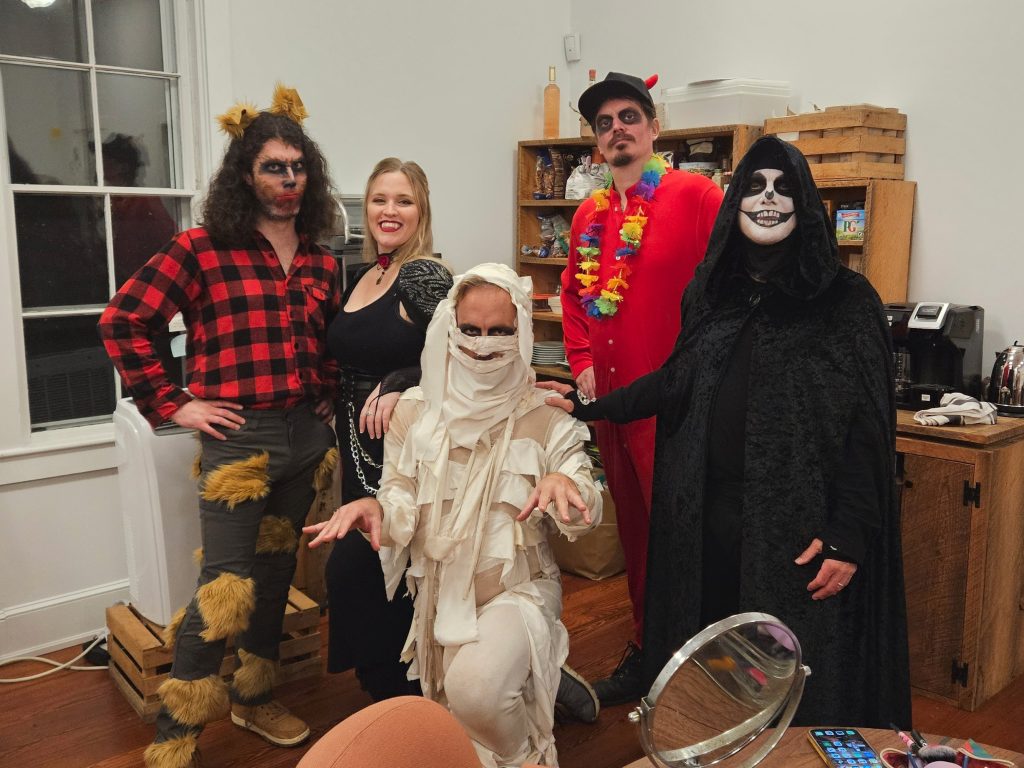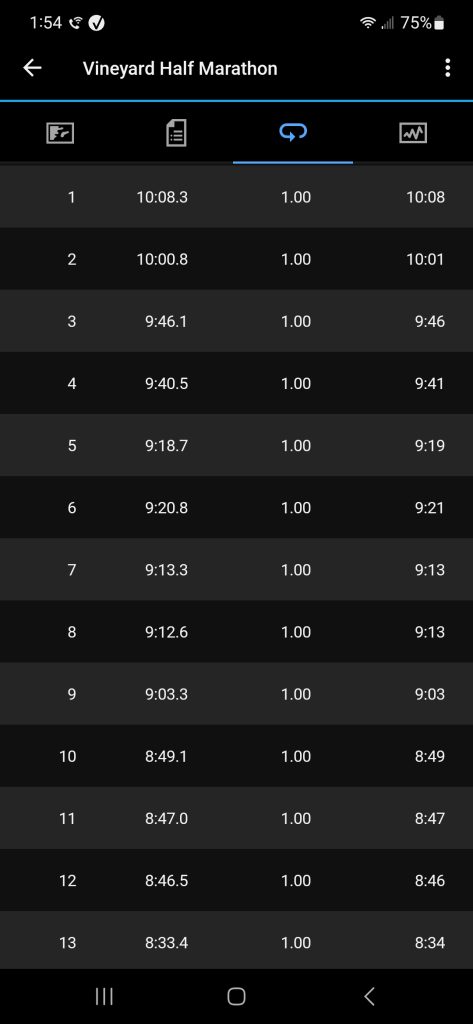I don’t usually do annual letters or year-end reports to brag about my accomplishments or complain about life’s burdens. But this time I am going to blow my own horn shamelessly. I could invoke the excuse that I am trying to demonstrate that even at the age of 65, you can have new experiences, learn new shit, and do cool things that you had hitherto never imagined — the way retirement is supposed to be. But… nah, fuck that.
The so-called TLDR
In 2023, in my third year of retirement, I studied (and learned some) Brazilian Portuguese; spent a couple weeks in Brazil; traveled to British Columbia; published more writing than I had in years; made my theatrical debut, as the Fool in Shakespeare’s Twelfth Night, no less; acted in a Halloween-themed immersive theatrical experience, playing the Grim Reaper; and performed as singer/guitarist in public a few times. Although I would have done all this for free, I got paid for acting and music-making. The compensation, though nominal, came as a deeply satisfying surprise; I had never dared imagine anyone ever paying me anything to act in a play or sing jazz standards, much less at this stage of my life.
Travel and Language Study
I did more international traveling than usual: first a trip to Vancouver, British Colombia in January; and in March I went to see a dear old friend who lives in Serra da Natividade in the state of São Paulo, Brazil. I had not seen this guy for 20 years during which we had little contact. The death in 2022 of a mutual friend, the musician Leon Atkinson, had served as a wake-up call. It was one of those bucket-list things: if you say you want to go see your friend Peter in Brazil some day, you better fucking do it because later may be too late.
One cool thing I did in preparation for the trip was study Brazilian Portuguese systematically for six months. I happen to have fluent Spanish already, which gives you not a free lunch, but a deeply discounted one. And I happen to have moved to the one region in the US where Spanish is not the second most spoken language. On the Cape and islands, it’s Portuguese. So after bemoaning but not doing anything about my ignorance of Portuguese for the first couple years of living here, with the added motivation of the upcoming trip, I finally got busy using two methods: the Pimsleur system, and talking with Brazilian people on the island. The latter is what I call street lessons. The learning process was not only fun but effective. My Portuguese still sucks, but it’s far better than nothing.

The Brazil trip was memorable. I also got around to other places to see people in 2023: my stepson and his girlfriend in the Vancouver area of British Colombia; my nephew and his family in Chicago; one of my stepdaughters in San Diego; my daughter in New Jersey; some very dear old friends in Connecticut.
Acting!
In the spring I succumbed to the temptation to audition for the Martha’s Vineyard Playhouse production of the Shakespeare comedy Twelfth Night. With exactly zero real theatrical experience, I felt a bit presumptuous, because this is not quite a community theater where everyone gets to participate who wants to. The first thing I did was check out a copy of the play from the library and read it with a view to finding a character who could conceivably be as old as me. I settled on the Fool, a natural fit: he says just the kind of shit I myself would say if I were more clever and speaking Shakespearean English. With a combination of merit and right-place-right-time luck — there being nobody else around who was better suited — I got the part.
The whole experience was amazing, from the first rehearsals all the way through to the end of the run. I never had more fun in my life. It was an honor to take the stage with this fabulous cast, and the show was extremely successful. Now that I have hit that crack pipe, you know I will be back for more.

The only fucked up part of the Twelfth Night experience was COVID. We had three cast members fall. The first went down during rehearsals but recovered in time for the opening. The second was our Countess Olivia who missed the first four shows. Our outrageously talented and heroic director (left of the Fool with the guitar) stepped into the role, learning it with less than a week’s notice. Then your humble servant fell to COVID in the middle of the run, and that selfsame director learned my part on two days’ notice, performing it five times before I was able to come back.
The second theatrical gig I had in 2023 — and the only other one on my résumé — was the Halloween-themed immersive theatrical experience that took place in the fall. Abby Bender comes up with wildly imaginative stuff, and in collaboration with other brilliant minds, puts together shows that are sui generis. Sometimes these shows are site-specific, informed by the history and architecture of the building where they happen. I won’t try to describe Granger Things. Let’s just say there were deer/dancers, farm animals, Halloween monsters, and more. I was the Grim Reaper.

Making Music
In 2023, I managed to get in front of audiences to sing jazz standards, accompanying myself on the guitar. This is remarkable only because just a couple years ago I would not have imagined it happening. I don’t consider myself a “real” singer. I just do it because sometimes I want to hear my favorite tunes performed, and I am the only person around to do the singing. After doing this for a while, I decided to inflict it on others.
Writing
In 2023, I wrote: an article for the World Socialist Website about some Massachusetts court interpreters’ struggle for a living wage; a rather boring article about the same thing for Proteus, official publication of the National Association of Judiciary Interpreters and Translators (NAJIT); a little essay for the NAJIT blog about the court interpreter as actor; and an op-ed for the Martha’s Vineyard Times challenging the lie that equates opposition to the Gaza genocide with antisemitism. That makes 2023 an unusually prolific year for me.
Anti-genocide Activism
When the Israeli state began its genocidal assault on Gaza following Hamas’ October 7 attack, I responded by doing what little I can do: writing, protesting, encouraging others to do the same. Some other islanders and I got together and founded an informal organization called CeasefireMV, also known as MVforPalestine. I slapped together a minimal website for us.
Distance Running
In my 50s I ran some marathons and ultramarathons, and numerous shorter races, getting respectable results in age-relative terms. Then I got older and stopped training seriously, but kept moving my feet about three times a week. Pace discipline has never come easily to me. But in 2023 I ran the smoothest, most disciplined and well-executed half marathon of my career, starting slow, then gradually accelerating all the way through. It was also one of the slowest. This race was a parable: at last the old man had the wisdom and self-control to execute a race plan, but was now too old to run his half marathon any faster than 2:01:43.
Please, admire these split times:

There was one day in the summer when I got up in the morning and won the men 60-69 age group in a local 5K race, then went to the amphitheater later the same day to perform in the Shakespeare show. What a stud!
Conclusion
Thank you for indulging this shameless exercise in self-aggrandizement. It was a rewarding and productive year. Being 65 can be a lot of fun. If you’re younger than that, I hope too you have this much fun when you get here.
